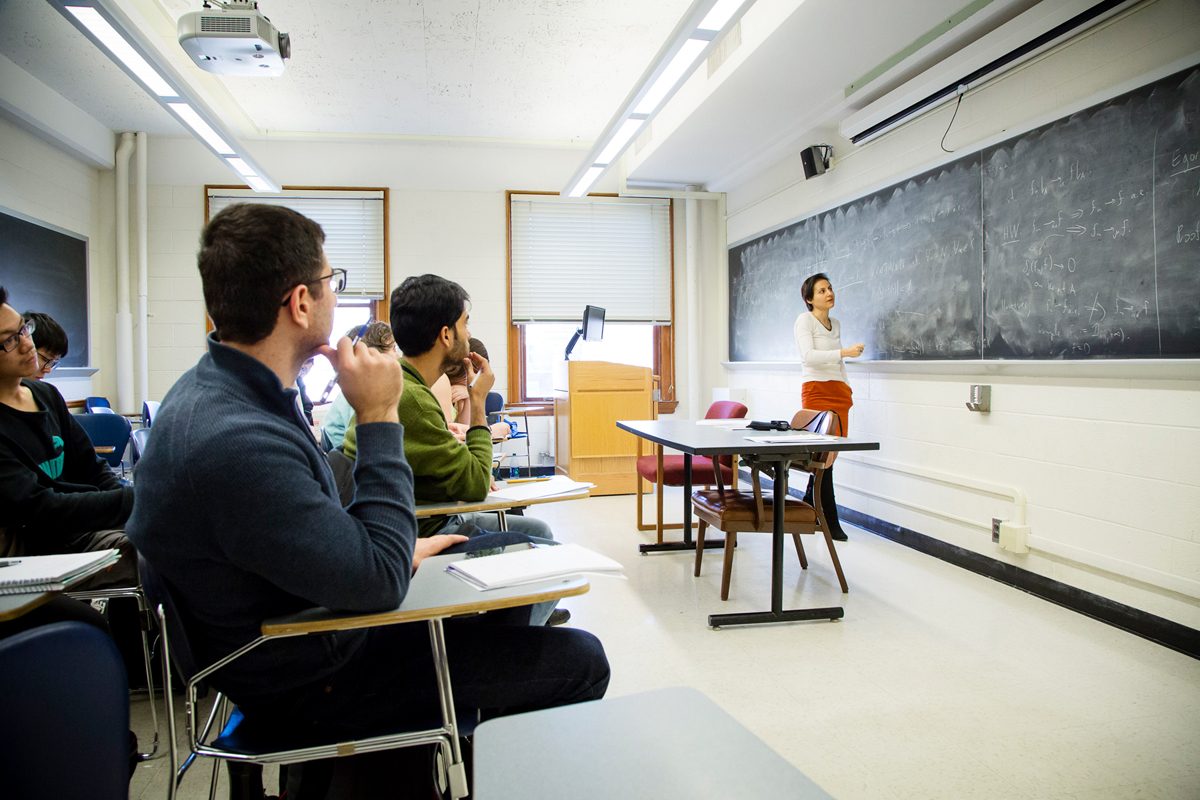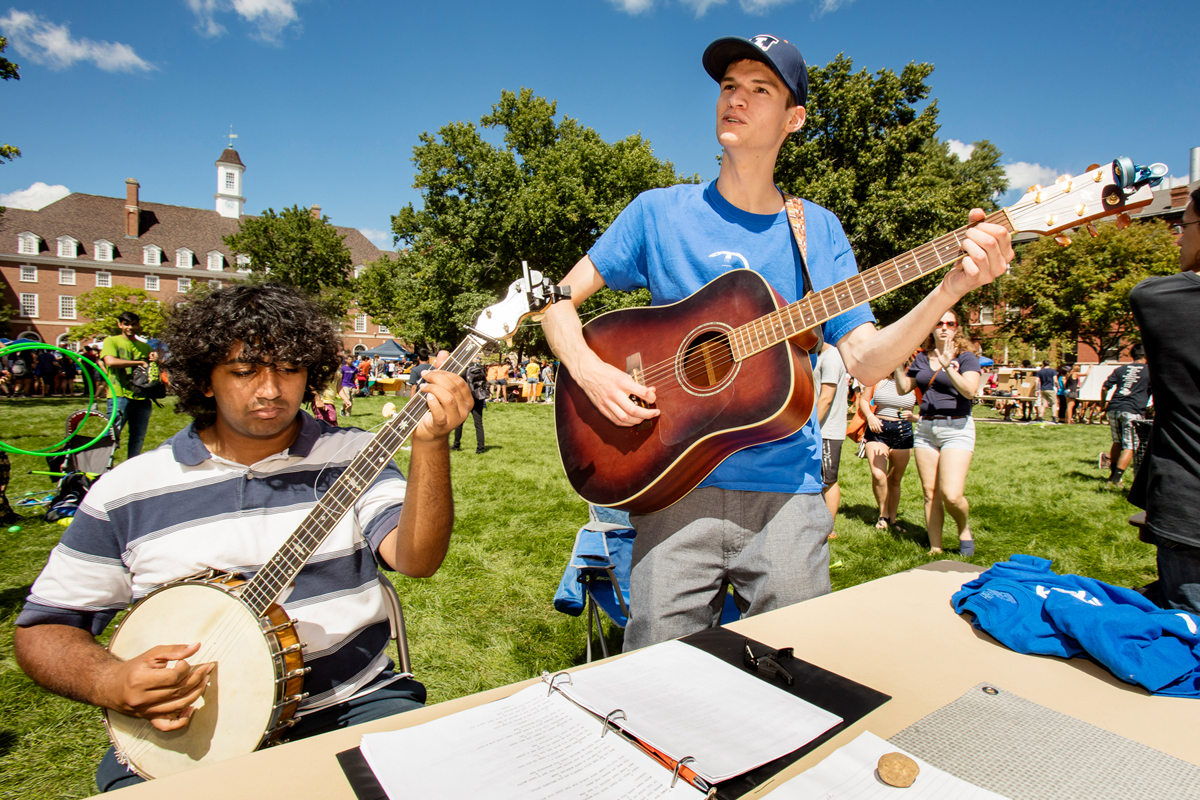Music Education
Music Education develops skills, concepts, and methodologies in music, including music theory and composition, musicianship, history, arranging, orchestration, improvisation, and conducting; teaching with technology; solo performance techniques acquired through private instrumental or vocal study; vocal and instrumental techniques, pedagogy, and literature related to solo and ensemble performance; and the relationship of music to other fields of knowledge. This curriculum prepares its graduates for teaching music from kindergarten through grade 12. Students complete a concentration in instrumental, choral, technology, or general music education.
Prepares for teaching students in secondary choral programs, as well as adult choirs. Throughout the program, students examine relevant developmental, social, and vocal issues in the middle school and high school choral classroom, explore concepts of choral tone and production, learn to select appropriate repertoire, and experiment with conducting gesture as well as various methods of score analysis and planning for instruction. Involvement with local choral programs provides opportunities for students to synthesize learning in real-world settings.
Prepares for teaching comprehensive musical courses in grades P-12. The concentration focuses on developing knowledge, skills, and understandings that foster vibrant and creative music programs in a variety of contexts. Courses enable students to consider musical culture, diversity, and developmental and social learning theories as foundations for planning instruction. Beyond the core music education courses, students take specialized classes in Early Childhood Music, Popular Music Pedagogy, and Music in the Interdisciplinary Curriculum. Teaching experiences in local schools complement many of the general music courses.
Prepares students to teach band and orchestra in elementary and secondary music education programs. Students in the Instrumental Concentration take a thoughtful sequence of technique (“how to play”) courses on percussion, string and wind instruments. In addition to the core music education, students take advanced instrumental methods (“how to teach”) and conducting classes. Significant observation and teaching experiences in either band and orchestra classrooms at both the middle school and high school level are included throughout the course of study.
Prepares students for contemporary and emerging practices related to teaching with, through, and about various technologies in P-12 music classrooms. Students in the Technology concentration of the BME degree program have the opportunity to explore areas including, but not limited to computer programming, digital and electronic music creation, electrical engineering, mediated educational environments, multimedia, sound recording and reproduction, and/or sound reinforcement. Additionally, students in this concentration apply their experiences in these varied fields to P-12 music education settings via a capstone portfolio project.
- EPSY 201—Educational Psychology
- MUS 101—Music Theory and Practice I
- MUS 107—Aural Skills I
Students should consult with an academic advisor regarding course selection prior to the advanced registration period.
Music educators have teaching careers available in preschools through high schools, adult learning centers, and private studio teaching.
- Ability to concentrate and practice musical instruments for long periods
- Ability to make critical observations
- Ability to read musical notes accurately
- Basic tools of self-promotion
- Confidence
- Creativity
- Competencies in business management, computers, or marketing to broaden employment possibilities.
- Flexibility regarding work schedules
- Good finger responses
- Good listener
- Positive attitude
- Team player but also ability to work alone
- Works well under pressure
- Adult Education Teacher
- Curriculum Specialist
- Education Management
- Educational Resource
- Educational Therapist
- Elementary Teacher
- Kindergarten Teacher
- Secondary School Teacher
- Tutor
- Vocational Rehab Counselor
Some careers may require education beyond an undergraduate degree.
- Participating in undergraduate research
- Applying for a study abroad experience
- Utilizing resources of The Career Center
- Joining a Registered Student Organization (RSO) related to this major, such as:
- American String Teachers Association: dedicated to the promotion and advancement of string playing, teaching, and orchestral development. Offers professional development for string performers and string educators, including workshops, technique masterclasses, and social events.
- Illinois Student Association of Music Scholars: Augments the academic experience, scholarship, and community of students in musicology and related fields of music scholarship through community interaction and social engagement.
- Student Education Association: offers professional opportunities to learn about issues teachers face while providing students with the skills and experiences necessary to become the best teachers. We also focus on community outreach and political action; serving as an organization for well-rounded, top-notch, future leading educators.
There are several professional organizations dedicated to Music Education. Their websites might be able to provide a glimpse in the world of Music Education. These organizations include Music Teachers National Association and Illinois Music Educators Association.


